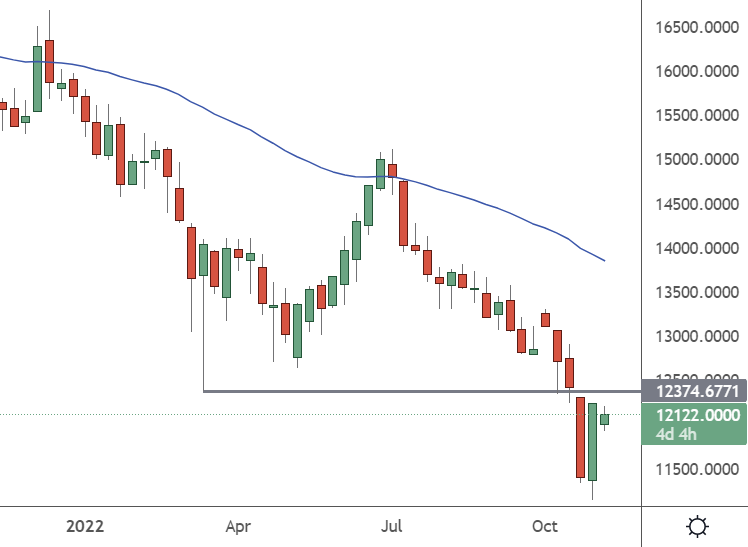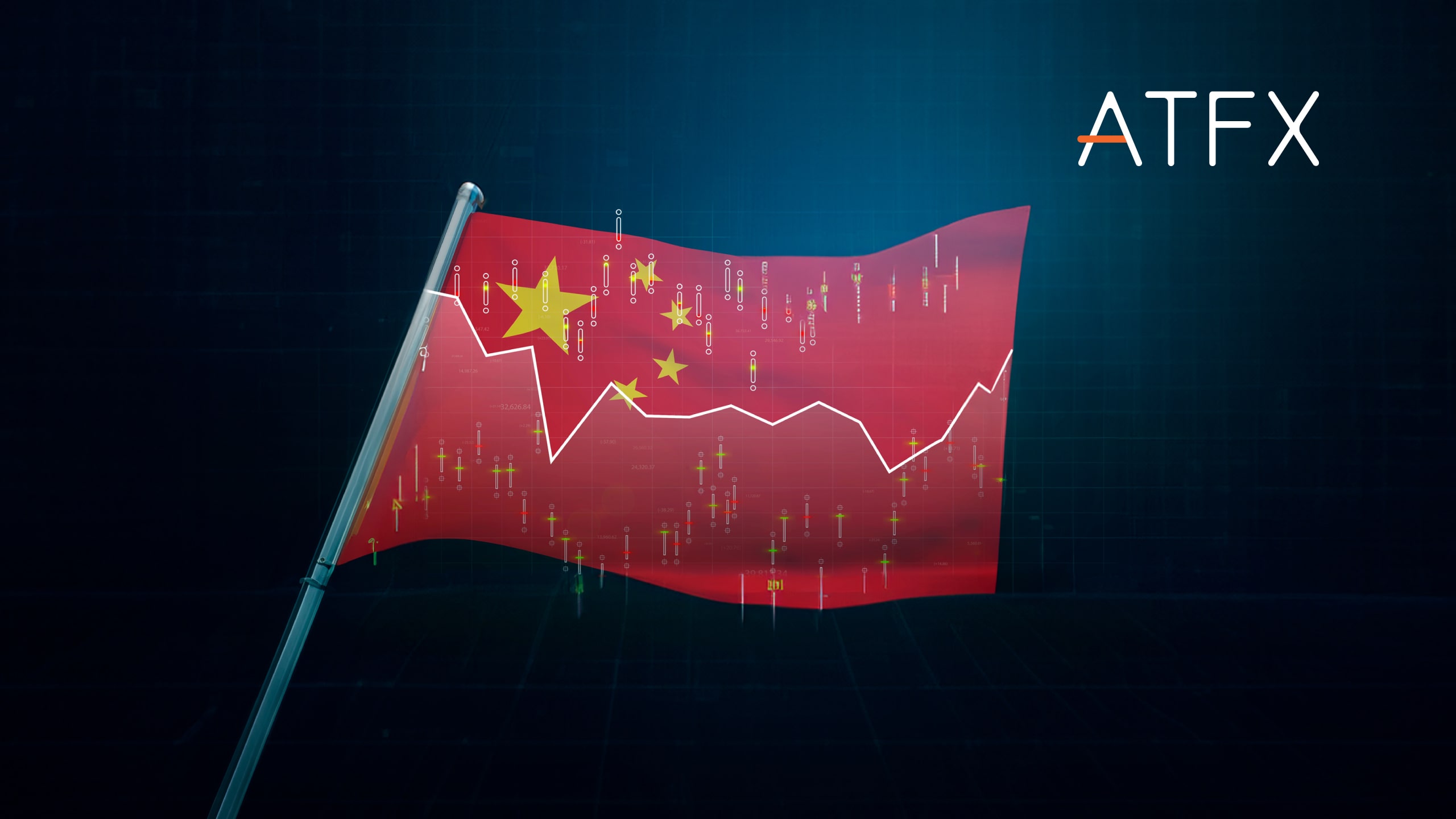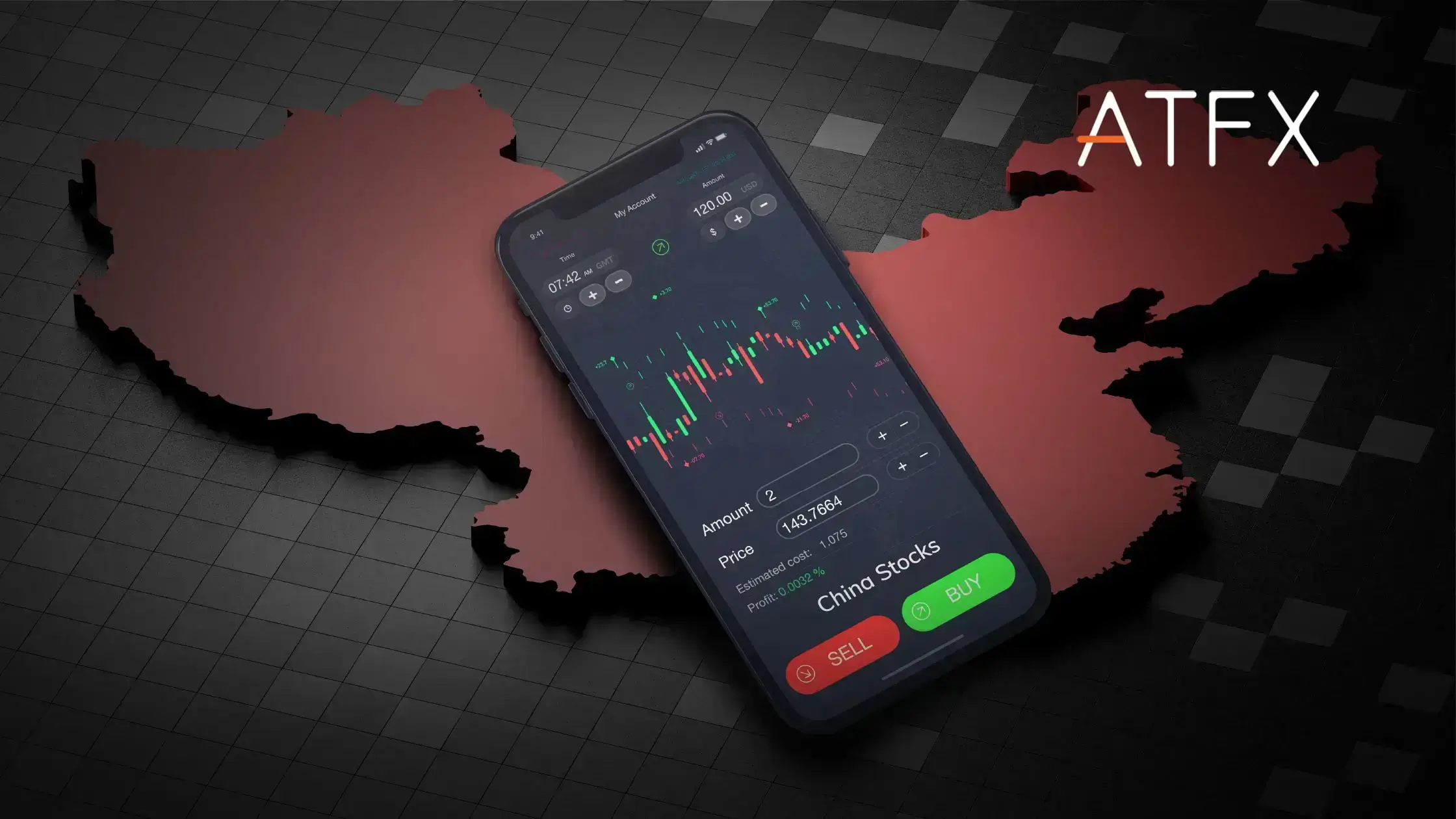A rally in the China 50 index paused Monday after authorities dampened hopes for an end to the zero covid strategies.
Markets are also awaiting inflation data from the Chinese economy on Tuesday.
CHI50 – Weekly Chart

Last week, a sharp rally in the Chinese stock market had the index hovering near the critical 12,375 level we discussed recently. The index would need a strong rally above that level but is currently finding a headwind with authorities pushing back on end to zero covid lockdowns.
China’s exports to the US and Europe have dipped due to supply chain problems. Compounded by weakening consumer demand, the Chinese economy has suffered. China’s National Health Commission warned that the Covid situation would likely worsen as the winter flu season approaches.
Tuesday also brings inflation figures for the Chinese economy and last month saw consumer inflation rising to a 29-month high. That was driven mainly by pork prices, but price pressures remain largely benign in an economy stuck with strict covid policies and a wobbling property sector.
China’s central bank has been trying to boost growth with a strategy that avoids being too loose and risking further price pressures and investment outflows. According to the National Bureau of Statistics, consumer prices rose an expected 2.8% last month from a year earlier, accelerating from 2.5% in August and climbing at the fastest since April 2020.
The data for October is expected to slow again to 2.5%, and traders can keep an eye on that number.
“Headline CPI inflation (on a year-over-year basis) is likely to stay moderate in the coming months on both a high base and subdued services demand,” analysts at Goldman Sachs said in September.
“We expect year-over-year PPI inflation to continue to fall on both base effects and eased inflationary pressures due to lower commodity prices.”
“The main constraint at the moment is the Renminbi, which is close to its weakest level in over a decade. We don’t expect policy rate cuts until pressure on the currency eases,” Capital Economics said in a research note.
“China’s inflation situation is quite different from that of Europe and the United States, and its monetary policy should be more ‘self-oriented’, giving priority to boosting domestic demand,” said Wen Bin, chief economist at Minsheng Bank.
The International Monetary Fund recently cut its growth forecast for China in 2022 and 2023 to 3.2% and 4.4%, respectively, saying the continued lockdowns burden the economy.
Investors should keep an eye on the critical support level in China stocks. A weekly close above 12,375 can spur a country’s stock market recovery.


